Conservative men dominate the politics of abortion access. Where are the progressive men?
As Election Day approaches, Brad Luckhardt has been knocking on doors in suburban Minnesota trying to connect with other male voters on a topic that is off many men's radar: abortion.
Luckhardt, 38, a Minneapolis consultant to nonprofit and government organizations, introduces himself as the father of a 4-year-old daughter and shares his concern that his girl and millions of others will grow up without abortion access after the Supreme Court's ruling in June that overturned Roe v. Wade.
"My daughter might not be able to get to choose where she wants to work (or) study because she doesn't feel safe in certain states, because she doesn't have the same right," Luckhardt said.
Luckhardt has long supported reproductive rights, including abortion, but the Supreme Court's ground-shaking rejection of Roe made him consider becoming more involved. He began going door-to-door after learning of a friend's involvement in Dads on the Doors, whose members have been campaigning in Minnesota for state Senate candidates – all Democratic women – who support abortion rights.
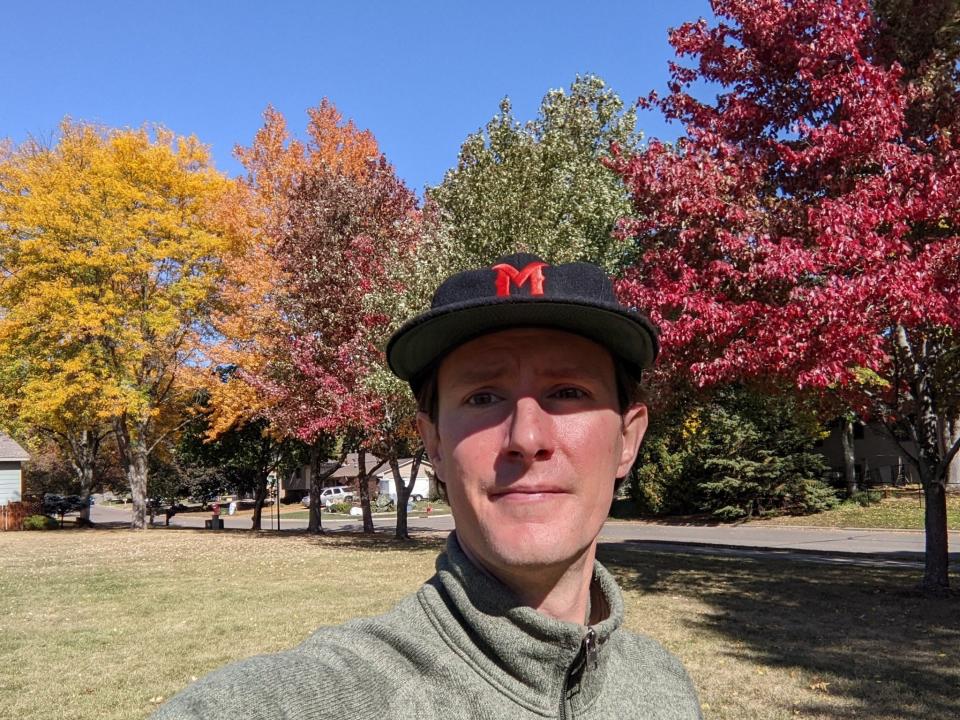
With days until Election Day, activists supporting abortion rights are hoping for more votes and action from men on a subject that has long focused on women, whose bodies and lives are most directly affected by public policy on the matter.
“This is an issue that is really about women's lives and their ability to make choices and their economic future and the ability to be able to plan when and if they are going to have children,” said Debbie Walsh, director of the Center for American Women and Politics at Rutgers University in New Jersey. “It may be important to men, but it’s at a different level of immediacy. … It doesn’t have the same primacy.”
Many men are, of course, affected by pregnancy, with some becoming unwilling fathers forced to pay for a child's care and others seeing their priorities shift as a result of unplanned fatherhood.
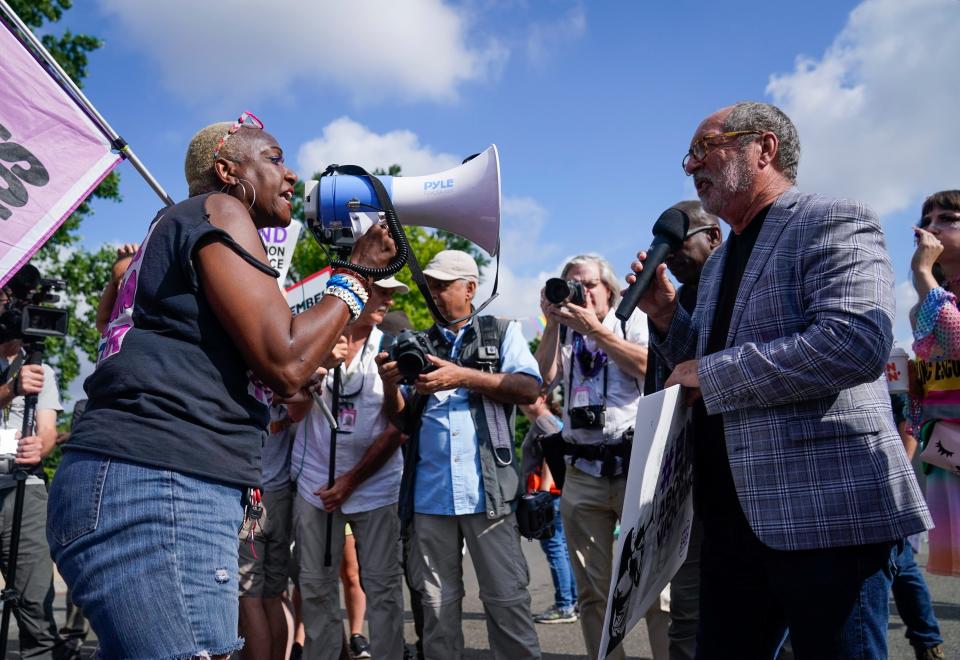
But for some male voters, there’s a lack of understanding about what abortion and access to it entails or a feeling of detachment about what often is labeled a women’s issue, regardless of their political affiliation, activists said. For others, there’s a fear of saying the wrong thing or being chastised for not understanding the topic in the direct way women do.
"They don't want to make a mistake and cause harm themselves, so they tend to be more passive," said Oren Jacobson, co-founder of Men4Choice, a fellowship organization that encourages men to become active in supporting abortion rights. "Our organizing work is designed to help men … reframe the way they think about abortion as just a woman's issue and help them understand that it's really a fight for freedom, control and power."
To be sure, conservative men have been front and center, leading government efforts to limit abortion access. They predominate in legislatures and governor's offices in states that have enacted restrictive abortion legislation, including near-total bans, in the wake of a ruling by a Supreme Court majority made up almost entirely of men.
"What we say is the men who are trying to ban abortion in this country are loud and using their voices and power to do so. So we have to speak up and push back on those guys," Jacobson said. "We try to help them think about the best ways for them to use their voice."
A majority of men (52%) oppose the Supreme Court's ruling, but more women (62%) are against it, according to a Pew Research Center survey in the days after the court's decision in Dobbs v. Jackson Women's Health Organization. In that survey, 66% of women told Pew abortion should be legal in all or most cases compared with 57% of men, a "very modest" gender gap increase from recent polling responses, said Jocelyn Kiley, Pew's associate director of research. When that question was asked in March, 63% of women and 58% of men said abortion should be legal in all or most cases, a 5-percentage-point gender gap.
That gender difference is underlined by Gallup polling: Twice as many women as men (36%-17%) say they will vote only for candidates who share their views on abortion.
The overturning of Roe v. Wade "has definitely pushed a button for women to identify more as pro-choice than they have in the past. Not as much of an impact on men," said Lydia Saad, Gallup's director of U.S. social research.
For many male voters on the sidelines of the abortion debate, hearing from a man on the topic, whether it's a male pastor or doctor in a TV commercial or a toddler's dad making a pitch on the voter's doorstep, can create a connection to communicate the significance of the issue, activists said.
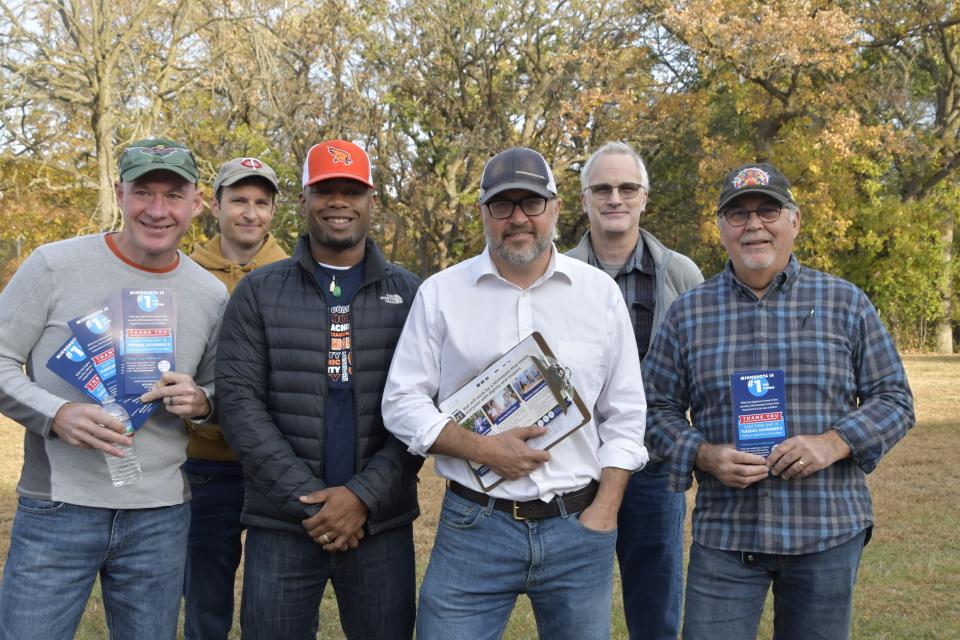
Paul Winkelaar, who co-founded Dads on the Doors to help Minnesota candidates who support abortion rights, said female friends persuaded him to reach out to other men, especially fathers.
"I think they believe that men talk to men in a different way than women would talk to men," he said. "They're like, 'You have a language as a dad or as a man that men will probably listen to more.'"
In some campaigns, messages have been specifically tailored to appeal to men. In Kansas, where voters in August resoundingly rejected a constitutional amendment that would have opened the door to a strict abortion ban, abortion rights advocates portrayed such restrictions as theft of personal freedom.
"One of the ads that got some attention focused on the amendment being a government mandate that would mandate your personal medical decisions," said Ashley All, communications director for Kansans for Constitutional Freedom, which opposed the amendment. "It was more government or political control over health decisions. That was something that resonated across the board, but specifically with men."
All said it's important to listen to potential male allies, rather than critique their motivations, as in cases when support for abortion rights stems from a traditional, paternalistic view of men protecting women.
"We figure out where they are on an issue and we meet them where they are, not where we wish they were," she said. "You're able to tap into certain motivations, certain feelings, certain values with men and women differently."
Conservative groups also want men to speak up more, both in supporting pregnant women and limiting abortion access.
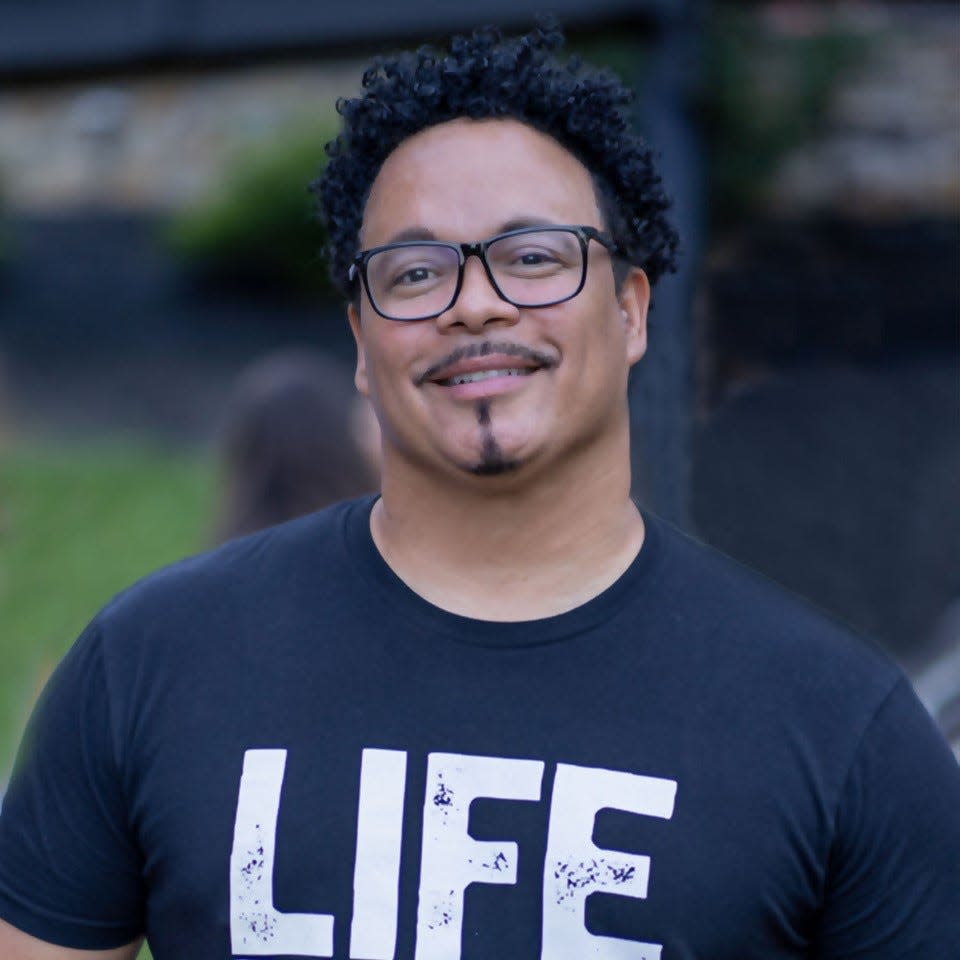
Ryan Bomberger, founder of the Radiance Foundation, a nonprofit organization that opposes abortion and counsels support and involvement with a partner's pregnancy. He said he is concerned that men can be excluded from the conversation when abortion, which he sees as a moral and spiritual question for everyone, is presented solely as a women's issue.
"Men should be encouraged to step up to what is their responsibility when they procreated a child," Bomberger said. "They hear way too often that they should just stay out of it. And that's what leads us to these tragic numbers. You're looking at, in 2020, 930,000 abortions in America."
And LGBTQ groups are calling on their members to take action when it comes to abortion rights, even if segments of the community, such as gay men, may be less likely to be involved in an unplanned pregnancy.
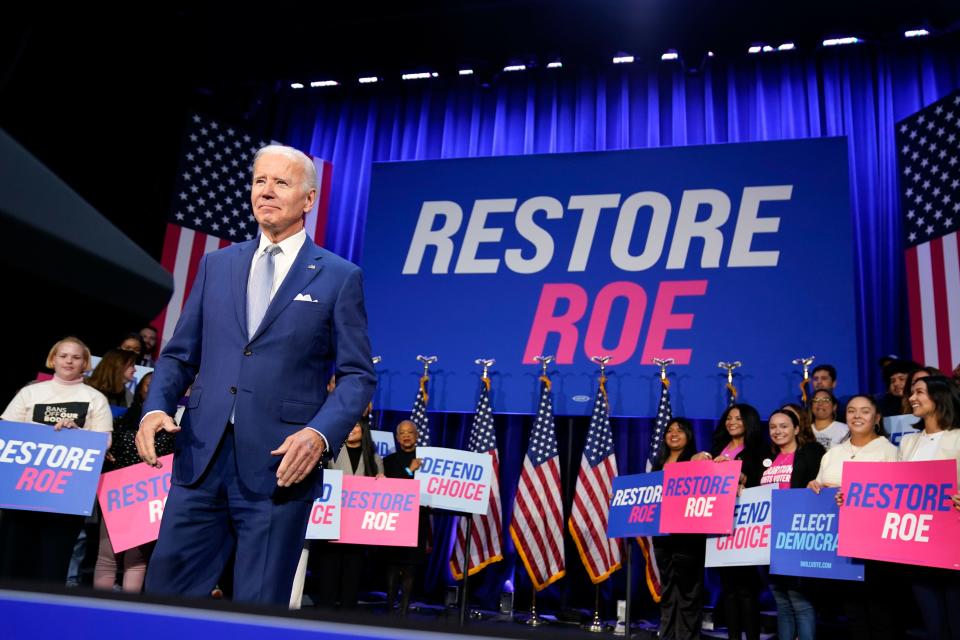
In Kentucky, the Fairness Campaign, an LGBTQ advocacy organization, supports the efforts of other progressive groups, including those fighting a referendum that would declare no state constitutional protection for abortion rights, but there's another motivation that hits close to home. The rejection of Roe v. Wade creates a potential threat to hard-won LGBTQ rights, such as same-sex marriage, a prospect raised by conservative Associate Justice Clarence Thomas.
"All of this is deeply interconnected," executive director Chris Hartman said. "LGBTQ folks, gay men, definitely see an attack on abortion access as just one step away from attacking every other right to privacy that has granted us the few freedoms that we've won over the past several decades."
This article originally appeared on USA TODAY: Abortion policy is major issue in midterms. Where are progressive men?

